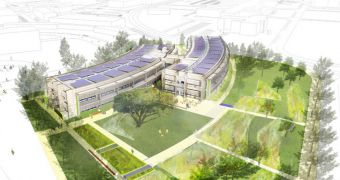For astronauts aboard the ISS, water is not a commodity. Life there would be impossible without recycling systems, and the American space agency says that innovations which allowed for these systems to be built may help innovate life here on Earth as well.
What NASA and other international partners did for the space station was basically create a type of closed-loop system, that is capable of turning gray water, wastewater and urine into potable water.
Recent investigations into the potential capabilites of the new system have also determined that it has the potential to produced certain amounts of energy, as well as the capability to store some of that energy.
With the approval of the 2010 NASA Authorization Act (S. 3729), experts at the Moffett Field, California-based NASA Ames Research Center have received the fundings they need to develop infrastructure for sustainable economic activities in space.
“Our initial interest was recovering drinking water from hygiene (gray) water,” explains Ames research scientist Michael Flynn.
“By collaborating with outside entities, an off-the-shelf forward osmosis membrane was developed that we later used to recover drinking water from wastewater and grow algae in seawater as a biofuel,” he adds.
“Today, we are researching power generation from the forward osmosis process,” the expert reveals at the International Conference on Environmental System, in Barcelona Spain.
Ames experts believe that forward osmosis (FO) technology may be able to purify water by simply passing it through an advanced membrane, SpaceRef reports.
Improvements in NASA's Direct Osmotic Concentration system (DOC), which relies on FO technologies, could result in devices that are better suited for a wide array of applications.
These include emergency and contingency water recovery, disaster relief, military operations and recreational wilderness travel applications, among many others.
In order to test the DOC, the Ames Center is building the the Leadership in Energy and Environmental Design (LEED) platinum-certified office building, which may include NASA's Sustainability Base.
“Sustainability Base will be a showcase of NASA technologies. NASA is leading the way with its innovation and ideas that have the potential to transform our country's overall energy and environmental performance,” says Ames associate director Steve Zornetzer

 14 DAY TRIAL //
14 DAY TRIAL //